Are you looking for a strong and durable wood for your boat deck that features a stunning aesthetic and an impressive resistance towards rot and moisture? Well, we’ve got you covered!
Selecting a wood type for your boat building or repair projects can be a real headache. There are multiple factors to consider – durability, strength, moisture resistance, salinity resistance, rot resistance, appeal, price, and so on.
To make your task easier, we’ve selected 4 best wood for boat decks in this post and elaborated on what makes them great boat-friendly wood as well as their drawbacks that might compel you to evaluate other options. Let’s begin!
Table of Contents
best wood for boat deck
1. Burmese Teak
Burmese teak, also popular as the king of woods, is one of the most popular wood choices for boat decks. Given the luxurious appeal the wood has and the durability it offers, this wood type is rightfully the favorite of many.
Below we will be discussing four primary characteristics of Burmese teak that make this wood a fantastic choice for boat decks.
Advantages of Burmese Teak
- Durability and a great return on investment:
Burmese teak woods are of supreme quality and are meant to last decades. In general, the life span of Burmese teak decks is 40+ years.
Furthermore, proper care and maintenance routine of the teak, including religious scrubbing and refinishing once a decade or two, ensures that you don’t have to change the teak deck in your boat’s life span. That’s a pretty great deal, isn’t it?
- Stunning aesthetics
If we are to say that we don’t want a Burmese teak deck, most of all would definitely be lying! The aesthetics of the wood is undeniably eye-catching.
The golden coppery color of Burmese teak deepens and darkens with age. The richness of the brown patina-colored age-old Burmese teak deck imparts to your boat is unparalleled.
If you fancy your teak deck color before the color change or the greying, you can renovate it using a teak renovator to bring back the golden-brown color you prefer.
- Easy maintenance:
Not all hardwoods are easy to maintain. Fortunately, Burmese teak is quite easy to maintain, clean, and refinish. Scrub your teak deck mildly using a boat detergent annually, and this routine will keep all of the deck dirt and stain issues at bay.
You can also clean your teak deck using a pressure hose with a gauge-fitted multi-nozzle jet. The recommended pressure to be set for the purpose is 6080 bar.
Likewise, in the case when you need to refinish the teak deck, sand and refinish the deck by yourself or take an expert’s guidance. Burmese teak is thick and strong, which makes sure that refinishing results in the deck as good as new.
You might also want to spray your teak deck with a teak protectant for some UV protection and mildew growth prevention.
- High Oil Content
The natural oil content in teak doesn’t only impart a natural sheen and smoothness to your teak desk but also prevents your deck from moisture issues and rotting.
Unlike some other woods that find it is challenging to adapt to the salty and moist environment the marine vessels are exposed to, teak, given its high oil content, doesn’t struggle too much with these issues. However, oiling your teak deck with manufactured teak oils isn’t recommended.
Drawbacks to Burmese Teak
Let’s point out the most conspicuous drawback – teaks are expensive. Secondly, teaks aren’t usually available in large sizes. And finally, as these woods are hard and heavy, they require more effort in order to cut and manipulate.
2. Mahogany
When it comes to durability, mahogany ranks impressively high. Like oak wood, mahogany is also heavy, strong, and dense. Below are four amazing properties mahogany displays that make it a great candidate for marine uses.
Advantages of Mahogany
- Resistance to shrinkage, rot, and decay:
Saltwater, harsh weather, sun, moisture, rotting – mahogany wood withstands all the hardships. Furthermore, mahogany displays minimal volume and dimension shrinkage in comparison to other natural woods.
- Strength and durability:
Naturally dense, this hardwood is popular for its strength. Boat decking material needs to be strong enough to resist all the bending and other forces. And mahogany is an exemplary wood type when it comes to strength and durability. It lasts for more than 40-50 years if taken good care of.
- Classic aesthetics:
There’s no debate about how the mahogany deck looks classic and elegant. For many, their boat is the place to relax and enjoy. You would definitely want your boat experience to be as luxurious as possible, wouldn’t you?
- Easy to work with:
Mahogany wood is further popular for being easy to cater to the tricky demands of boat building. It is easy to manipulate and turn using tools. Moreover, it is also easy to sand, stain, and finish.
Drawbacks to Mahogany
While the high density of mahogany wood aids in its strength and durability, it can result in the weight of the wood being quite heavy.
Therefore, you might need an extra pair of hands while working with this wood. Likewise, another disadvantage of mahogany is its limited production and increasing price.
Finally, mahogany wood, despite being reddish-brown in color originally, is available in a large range of colors, which is advantageous but can be a headache at times when you need to color-match.
3. Oak wood
Oak woods are prized for their rot resistance and strength, therefore making them one of the best woods for marine use. However, due to its weight, oak wood is not the typical, and practical choice for wood choice for decks in small boats, where keeping the overall weight low is imperative.
However, if your big boat is in need of a decking repair, here are two great qualities of oakwood that make it a great marine wood for boats.
Advantages of Oak Woods
- Strength and durability:
According to TRADA, the Timber Research And Development Association, oak woods are classed durable with a life span of around 15-25 years without any chemical treatments.
- Resistant to moisture and fungus:
Oaks being closed grain hardwood, are incredibly water-resistant. Therefore, it makes an excellent choice as decking material. In white oaks, the heartwood pores are clogged with tyloses, membranous projections which don’t allow water to pass through.
What’s more, these tyloses don’t allow hyphal entry in case of fungus infestation, making the wood fungus resistant. High tannins content in the wood also keeps fungi at bay as they are poisonous to fungi.
- Easy to work with:
Once saturated with steam, oak wood is easy to manipulate into the desired design. Like mahogany, this wood type is also easy to work with.
Moreover, as oak woods feature straight grain, despite minimal effort, the wood finishing is pretty impressive. Therefore, oak woods are also one of the most favored wood types when it comes to boat decking.
Drawbacks to Oak wood
Oak woods are notorious for staining easily. Moreover, the stain darkens over time, destroying the aesthetics of the deck. This type of wood is also prone to swelling, cracking, and shrinkage if not cared for and protected accordingly. Therefore, oak wood is high-maintenance.
4. Marine Plywood
Finally, let’s discuss plywoods – probably the most common wood type when it comes to DIY construction and repair projects.
Below are the two great plywood properties that make them a great candidate for decking material, followed by some of the disadvantages of opting for this wood type.
Advantages of Marine Plywood
- Easy availability and cost-effective:
Unlike hardwoods such as teaks, plywoods are cost-effective. However, despite the lower price, these engineered woods offer equally stunning smooth and stunning finishes. Furthermore, plywoods are common and conveniently available in the market.
- Easy to work with:
Plywoods are much lightweight than natural hardwoods. This characteristic of plywoods makes them easy to cut, sand, and manipulate, making them a great wood type for boat deck building.
Drawbacks to Marine Plywood
Plywoods, in general, do not last long. Plywoods contain voids inside the wood, which are notorious for trapping moisture. This phenomenon reduces plywood’s strength and durability significantly.
Fortunately, marine plywood is documented to last for 15-20 years. The variability in moisture resistance and durability of plywoods can be attributed to the difference in veneer thickness, glue type, and wood species.
Manufacturers use high-quality waterproof glue in between the veneer layers, which gives marine plywood more water-resistant characteristics.
Another disadvantage of plywood is that, unlike other natural hardwoods, plywoods demands a lot of care and maintenance.
Summary
We hope we could help you sort out your confusion regarding wood for your boat deck. If you have any further queries on this topic, feel free to shoot us with questions. We’ll try our best to help you with your boat deck build/repair.
Furthermore, what are your thoughts on our choices? Let us know if you agree or disagree with the list. And share with us your favorites! We’d love to interact with you in the comment section.
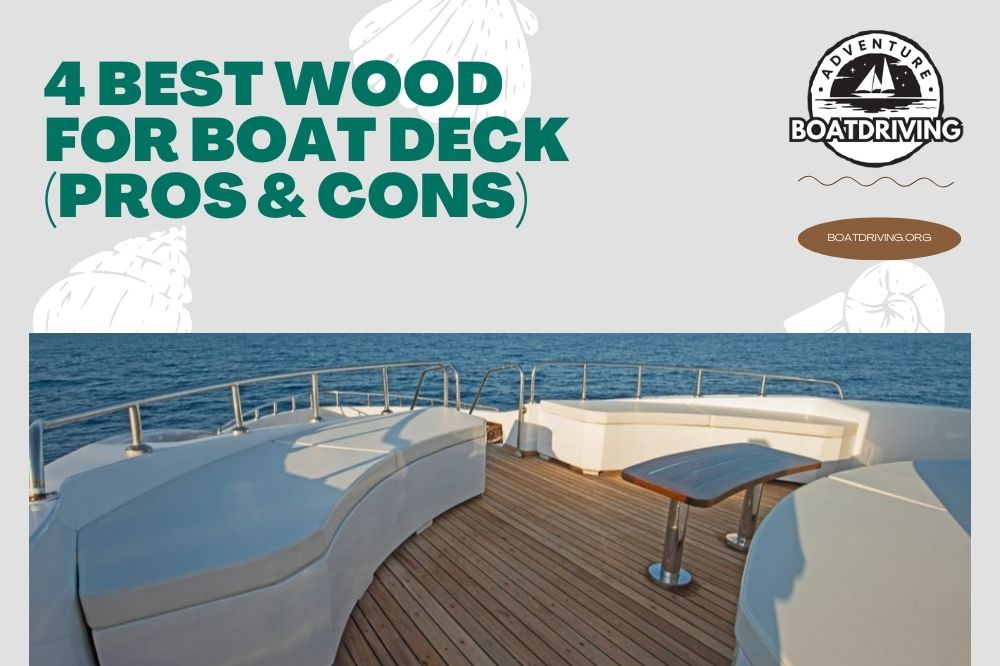
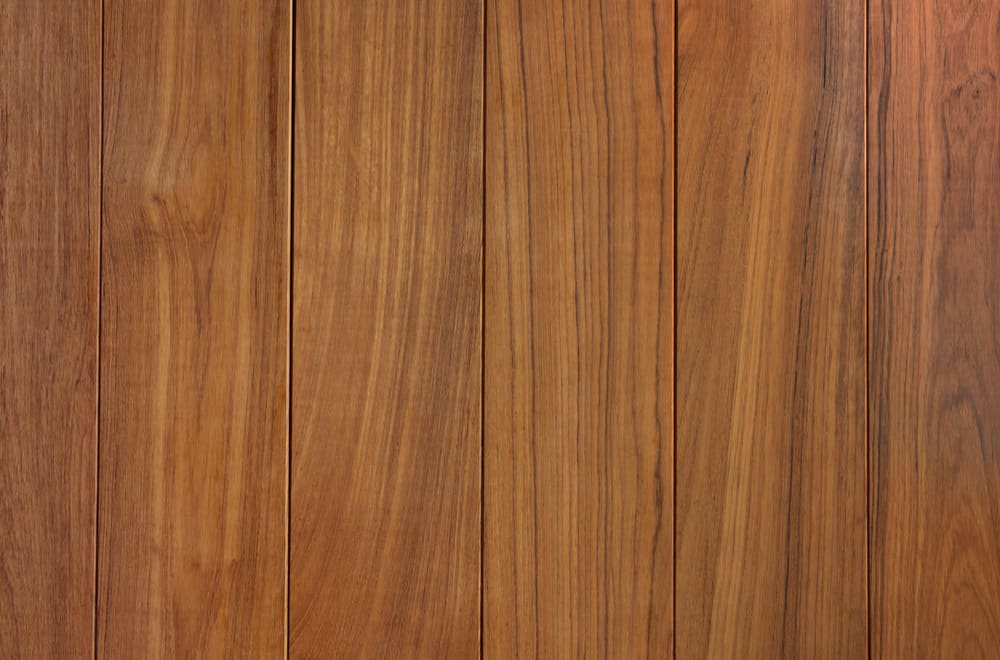
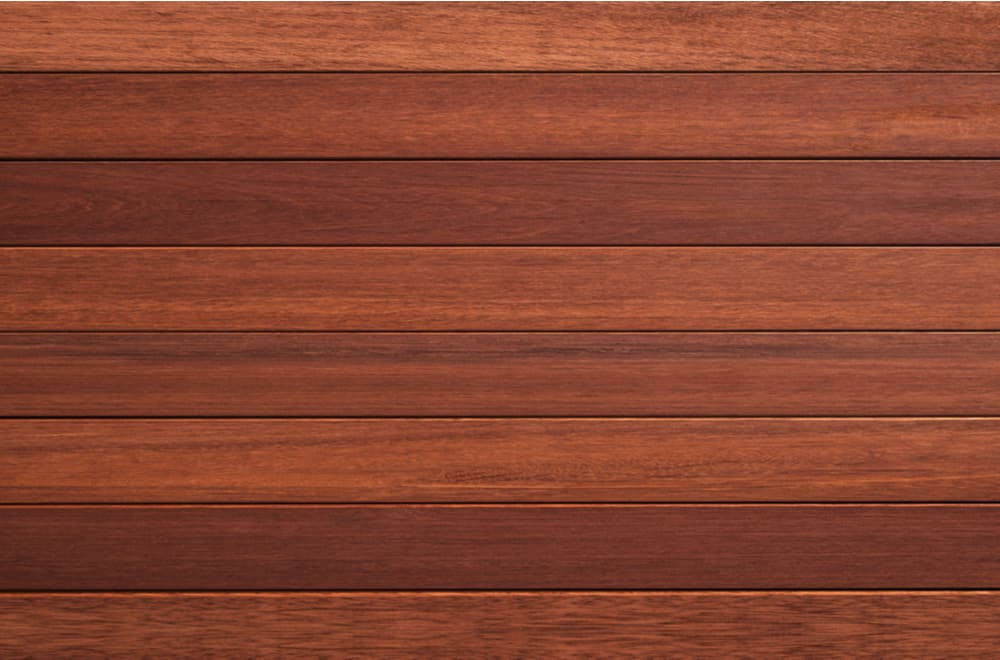
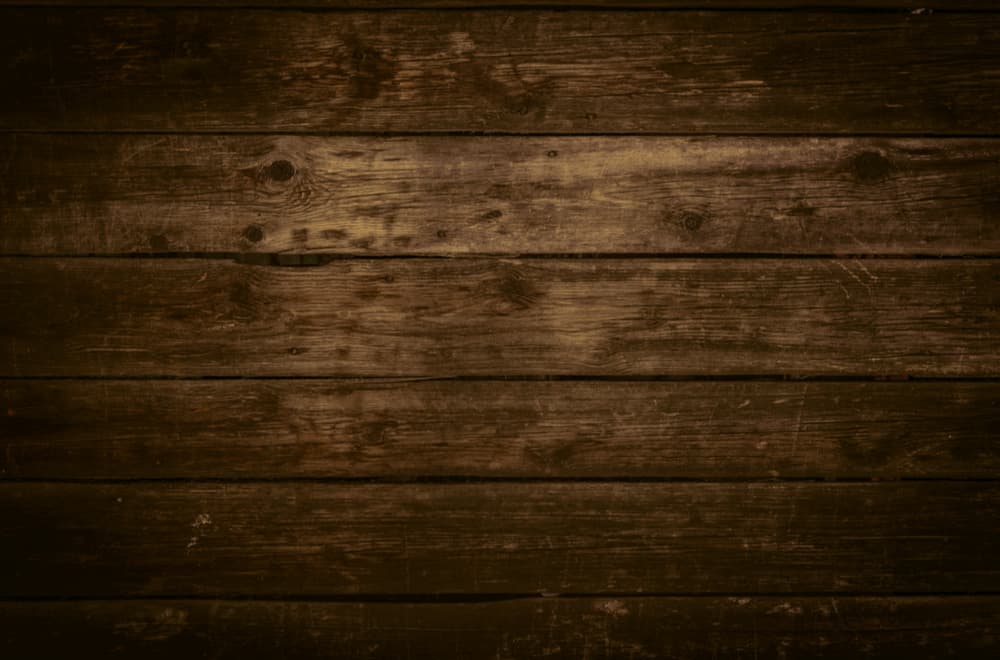
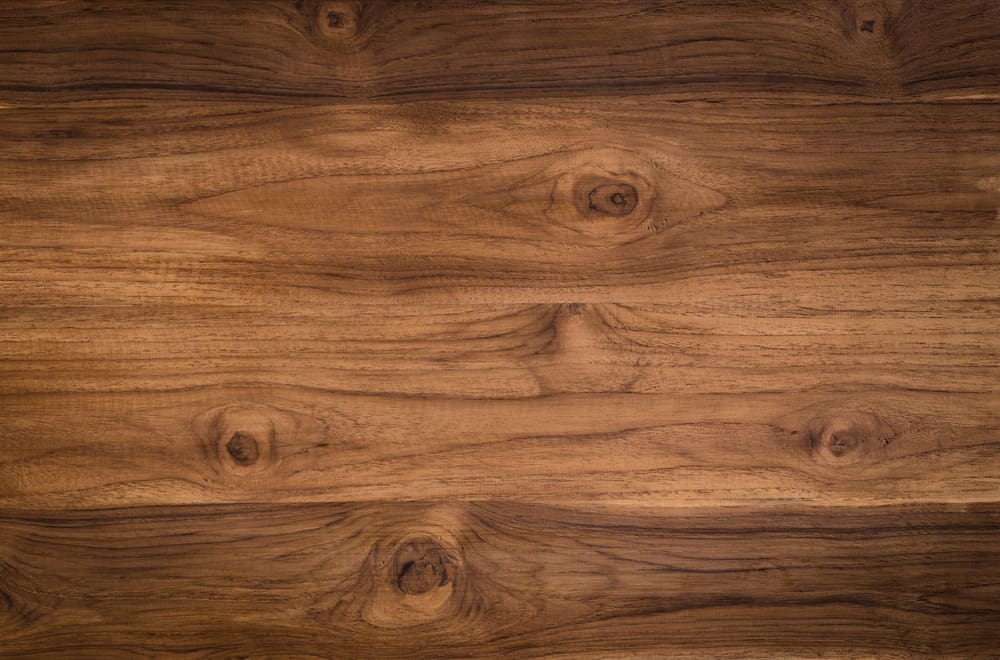
I’m an old man. Around boats for 40 years. As soon as I read your recommendation to pressure wash a teak deck, I didn’t bother reading the rest of your article. Pressure washers have no place on a boat but especially on raw wood.